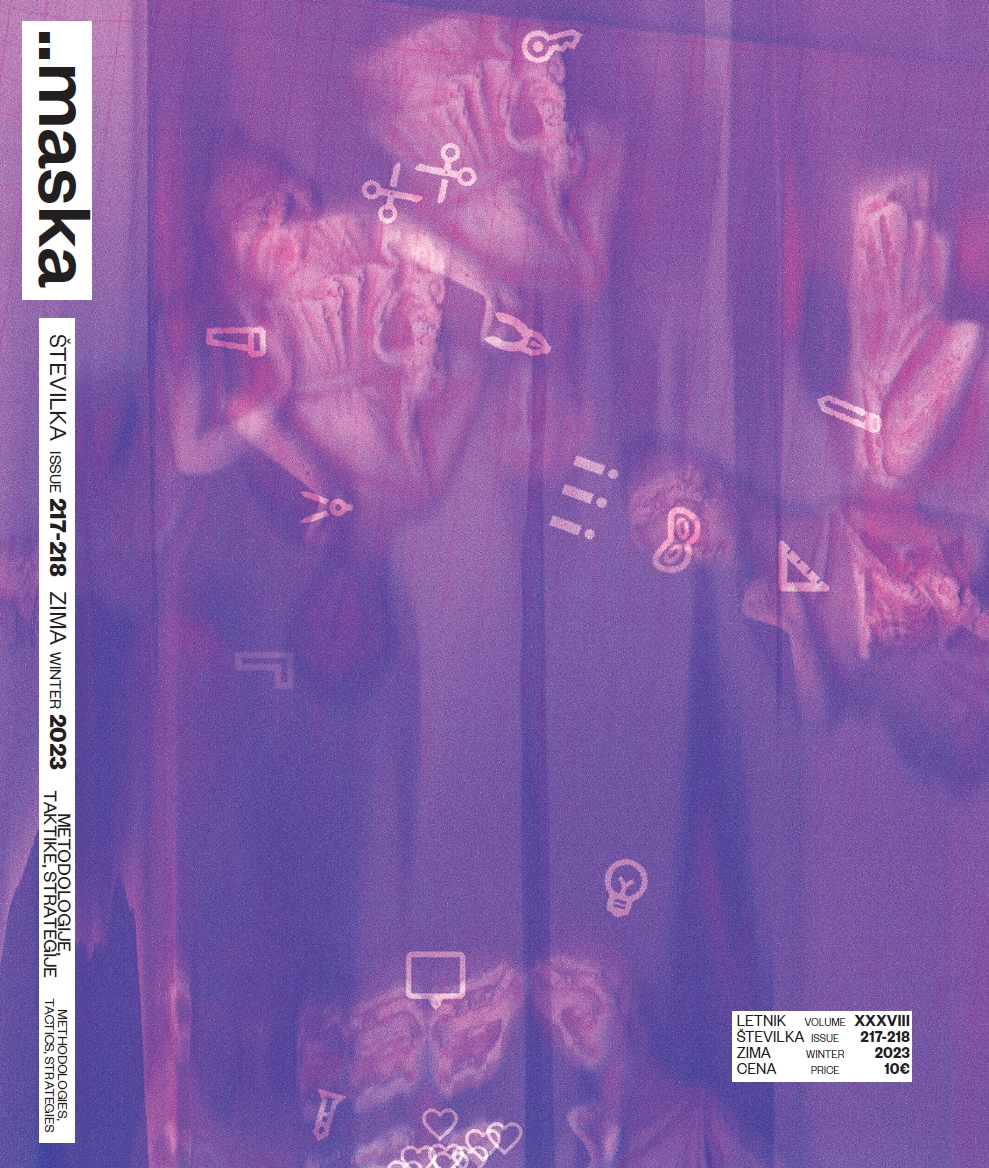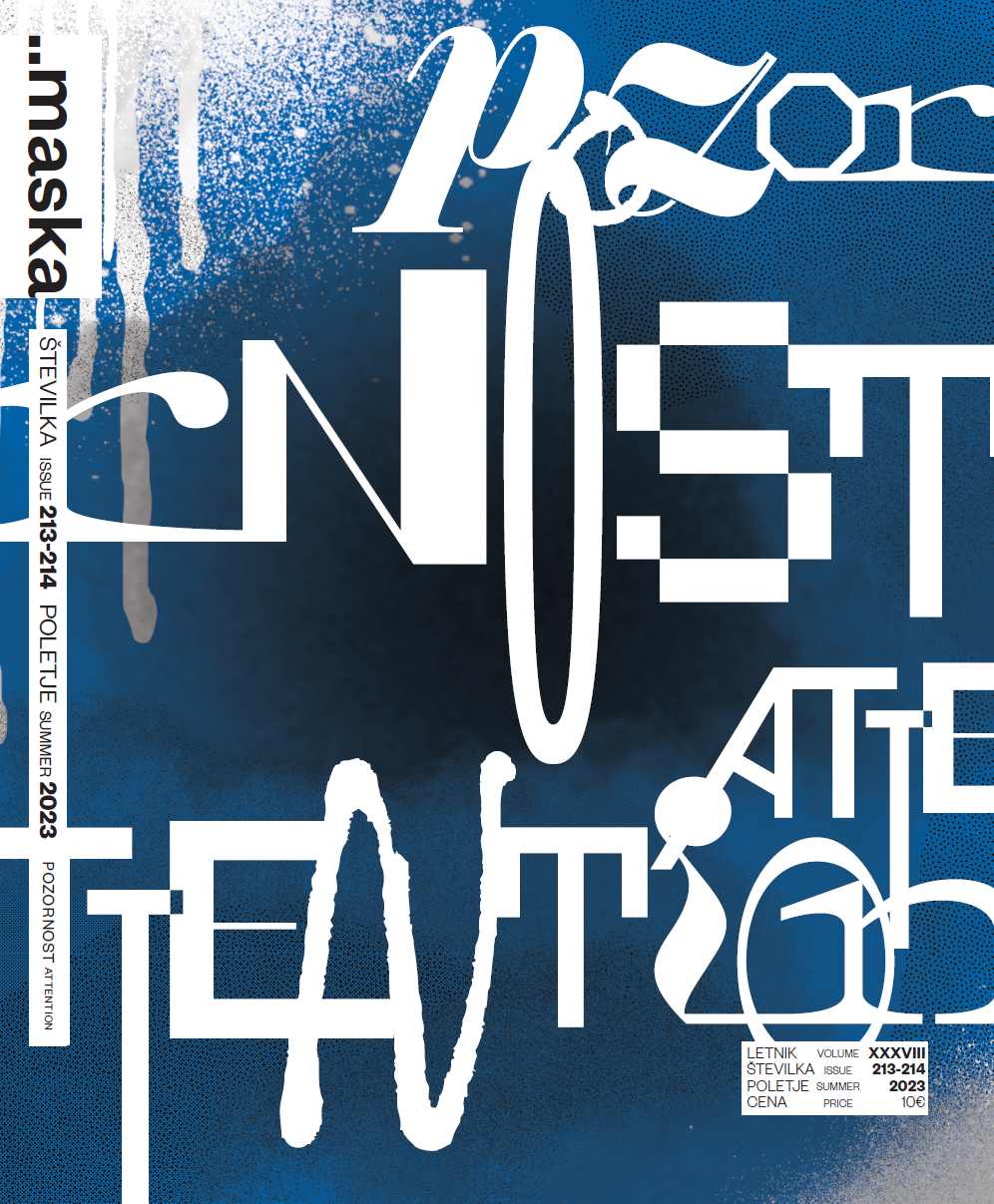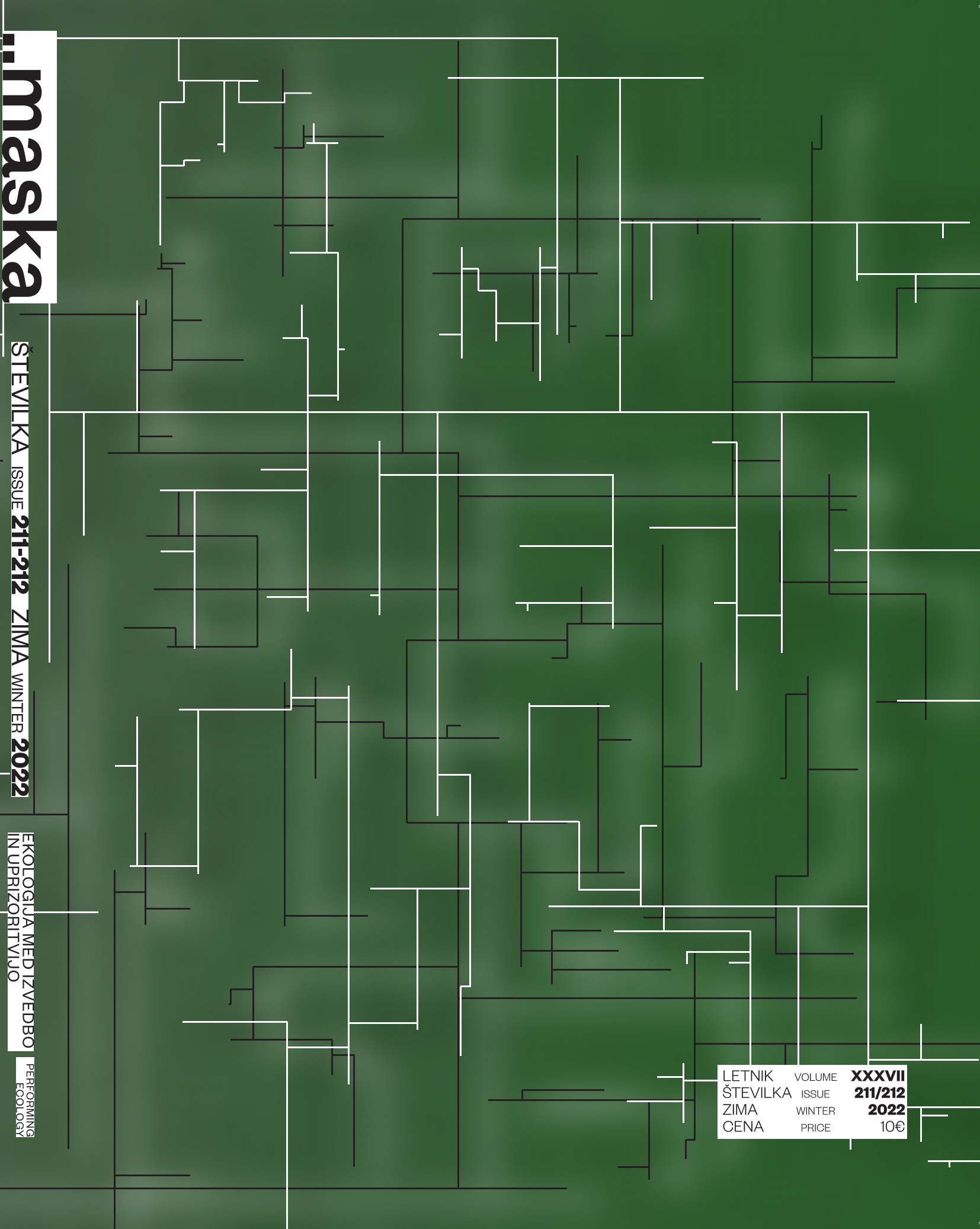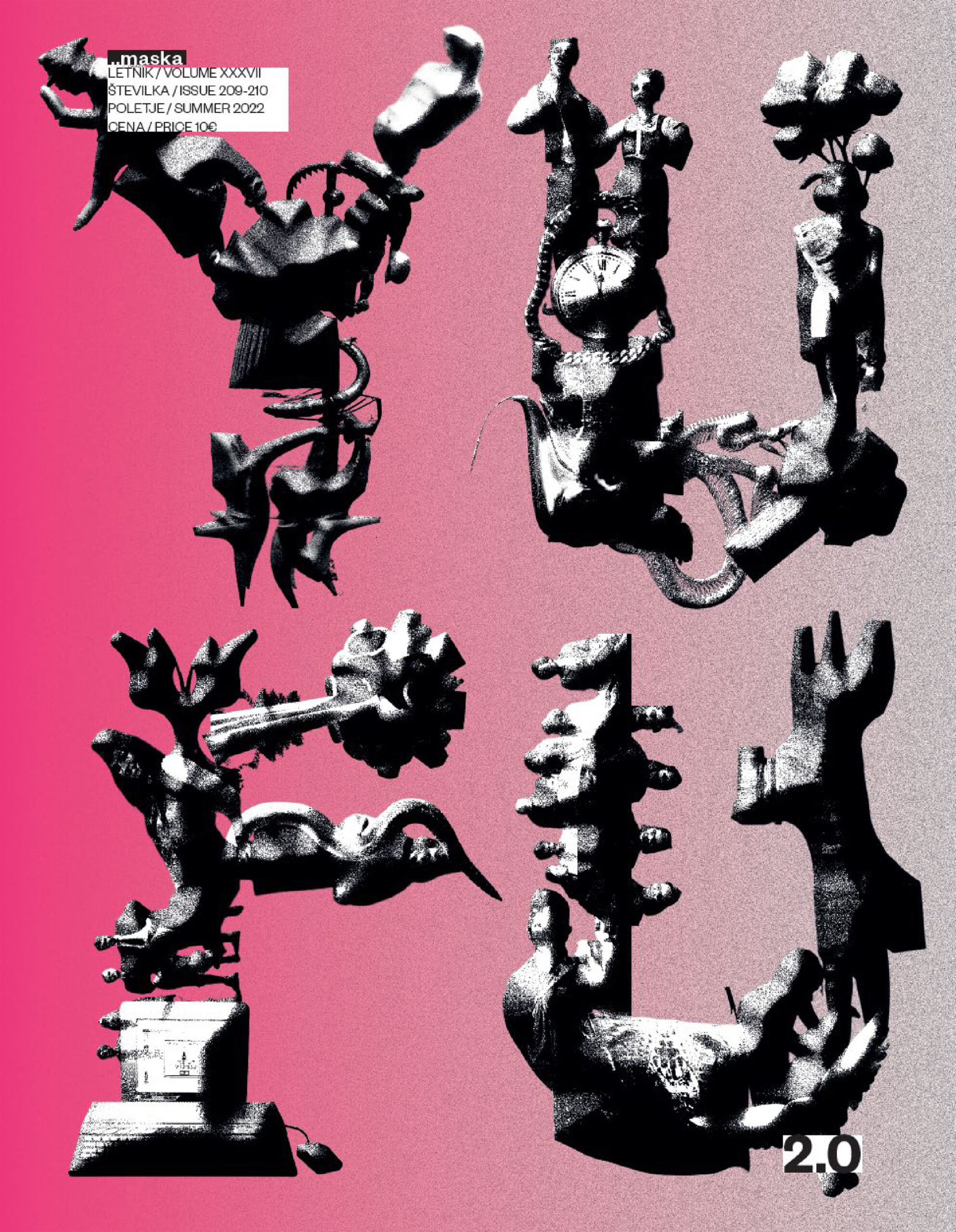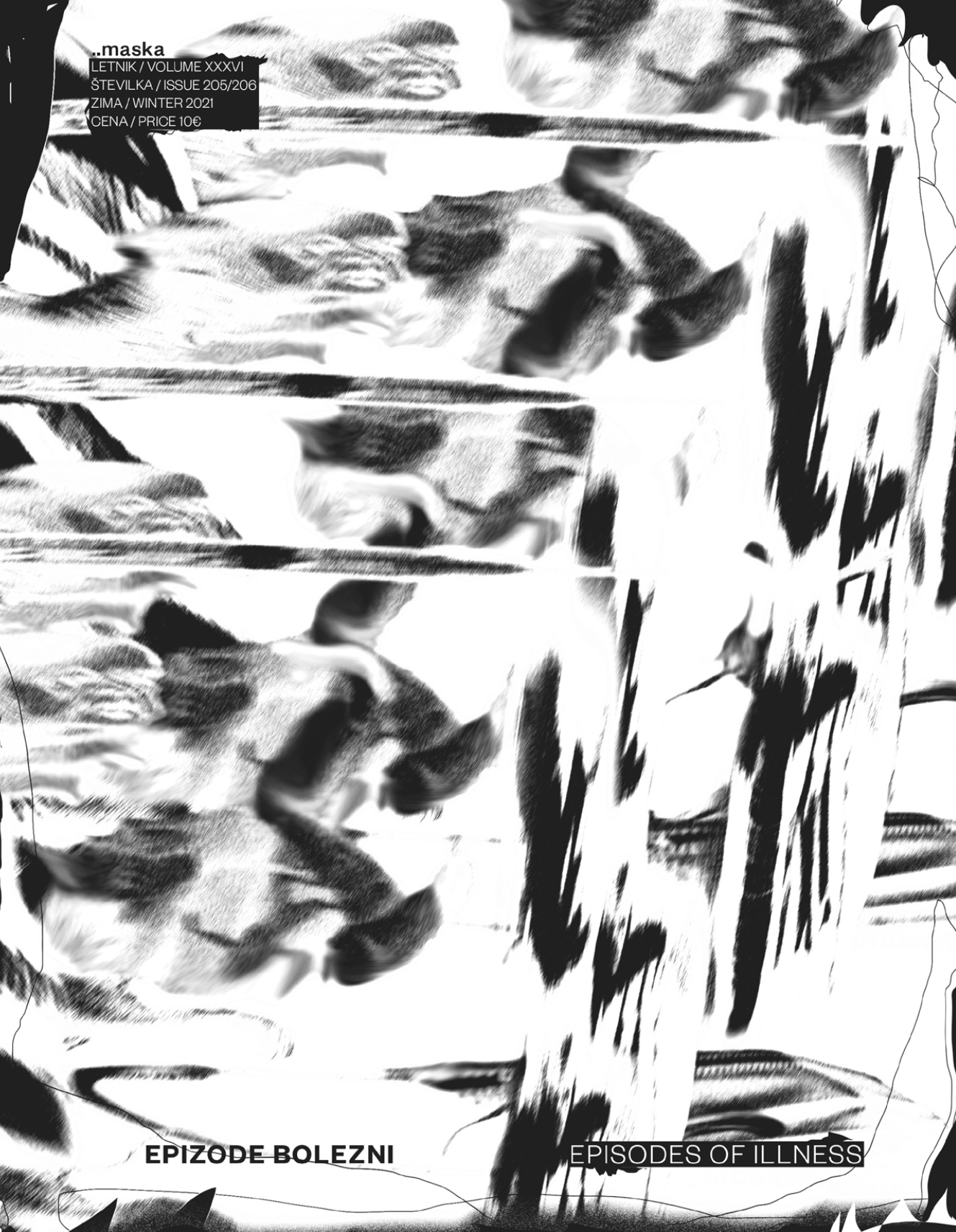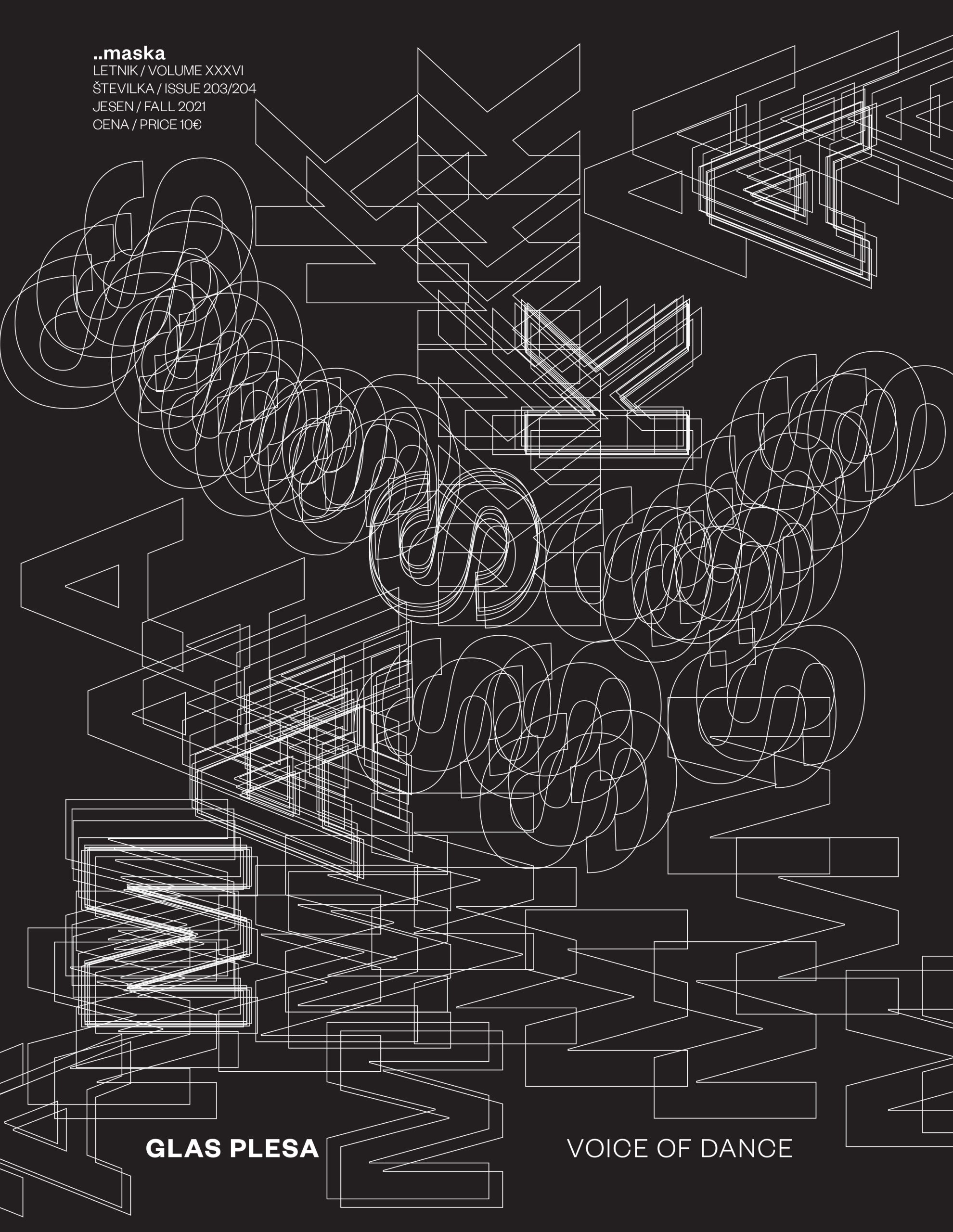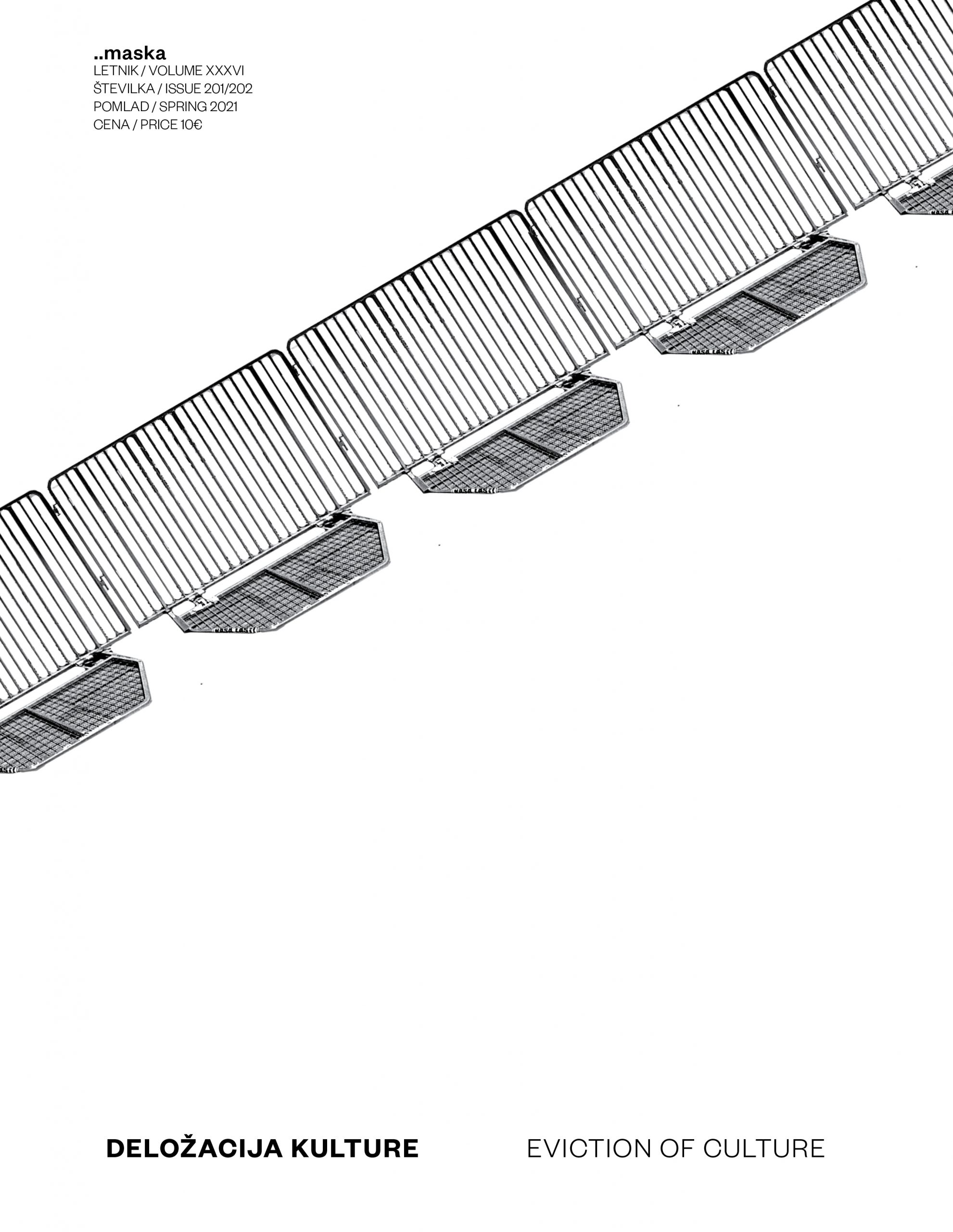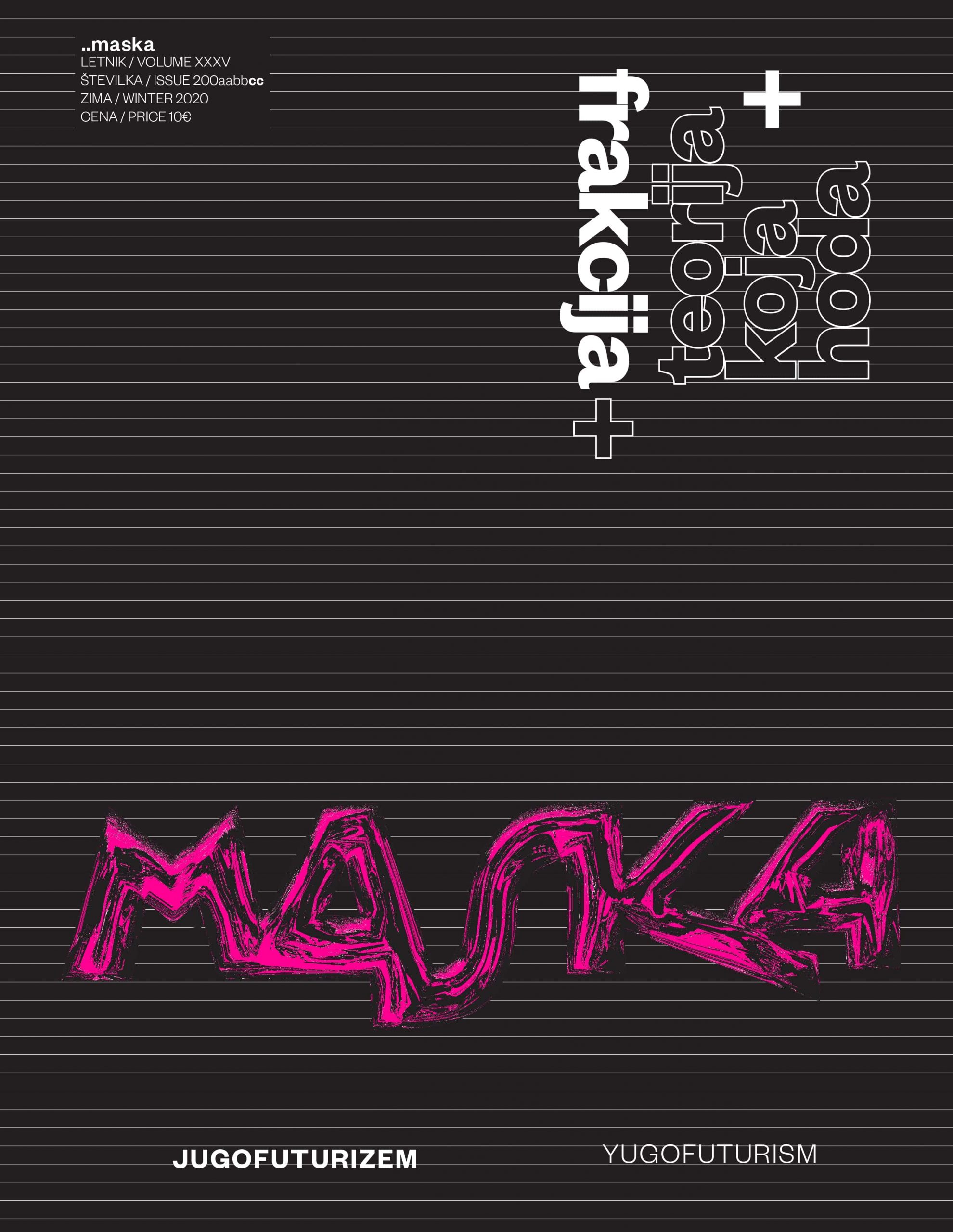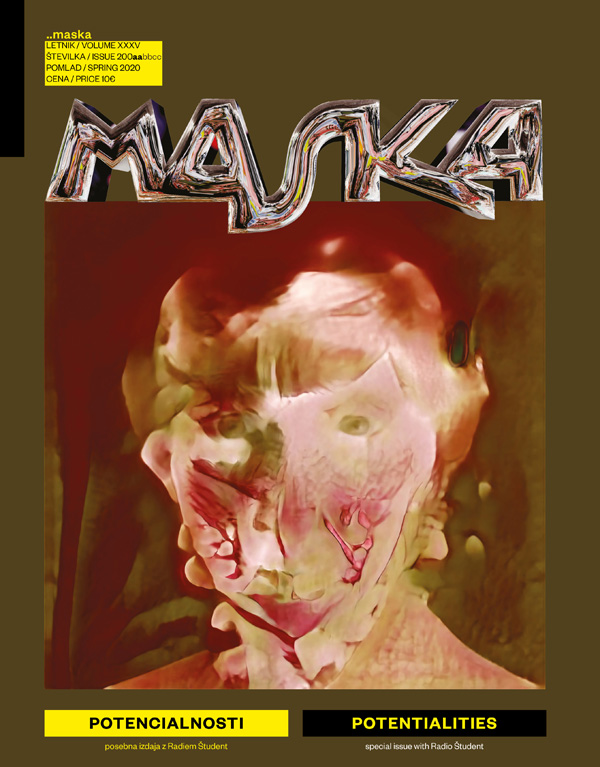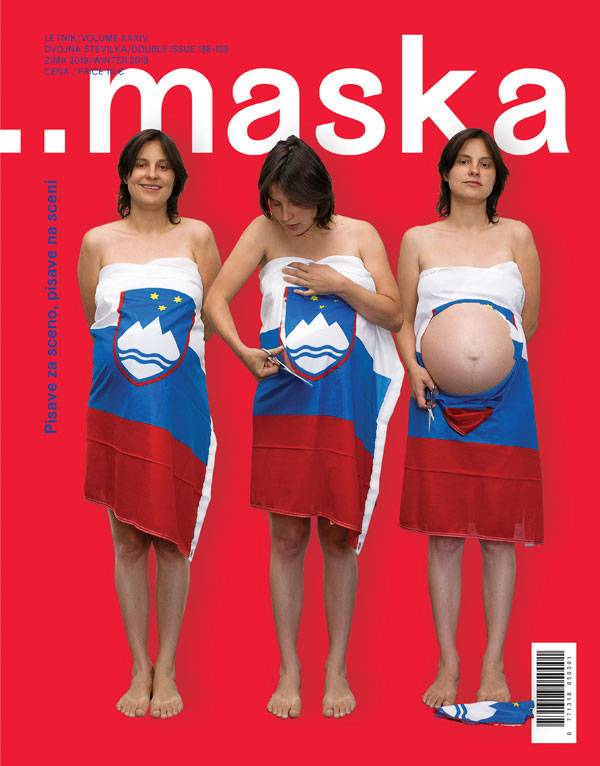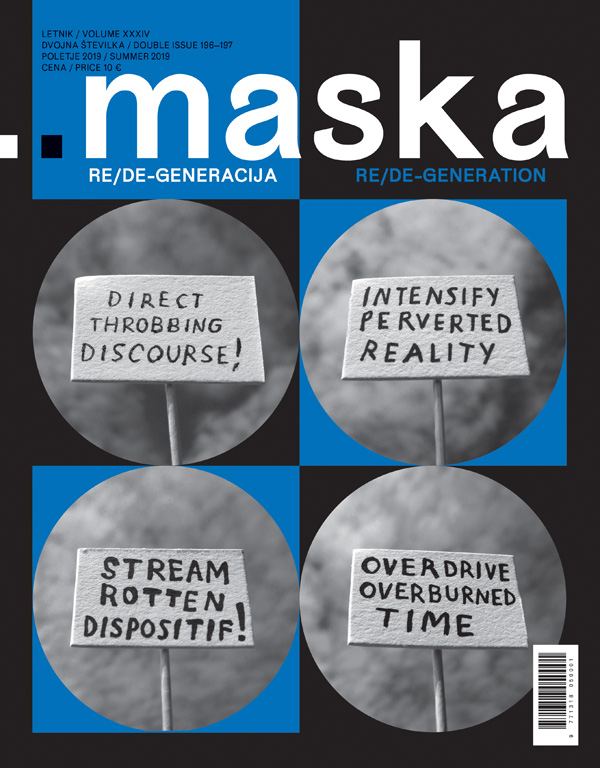Police
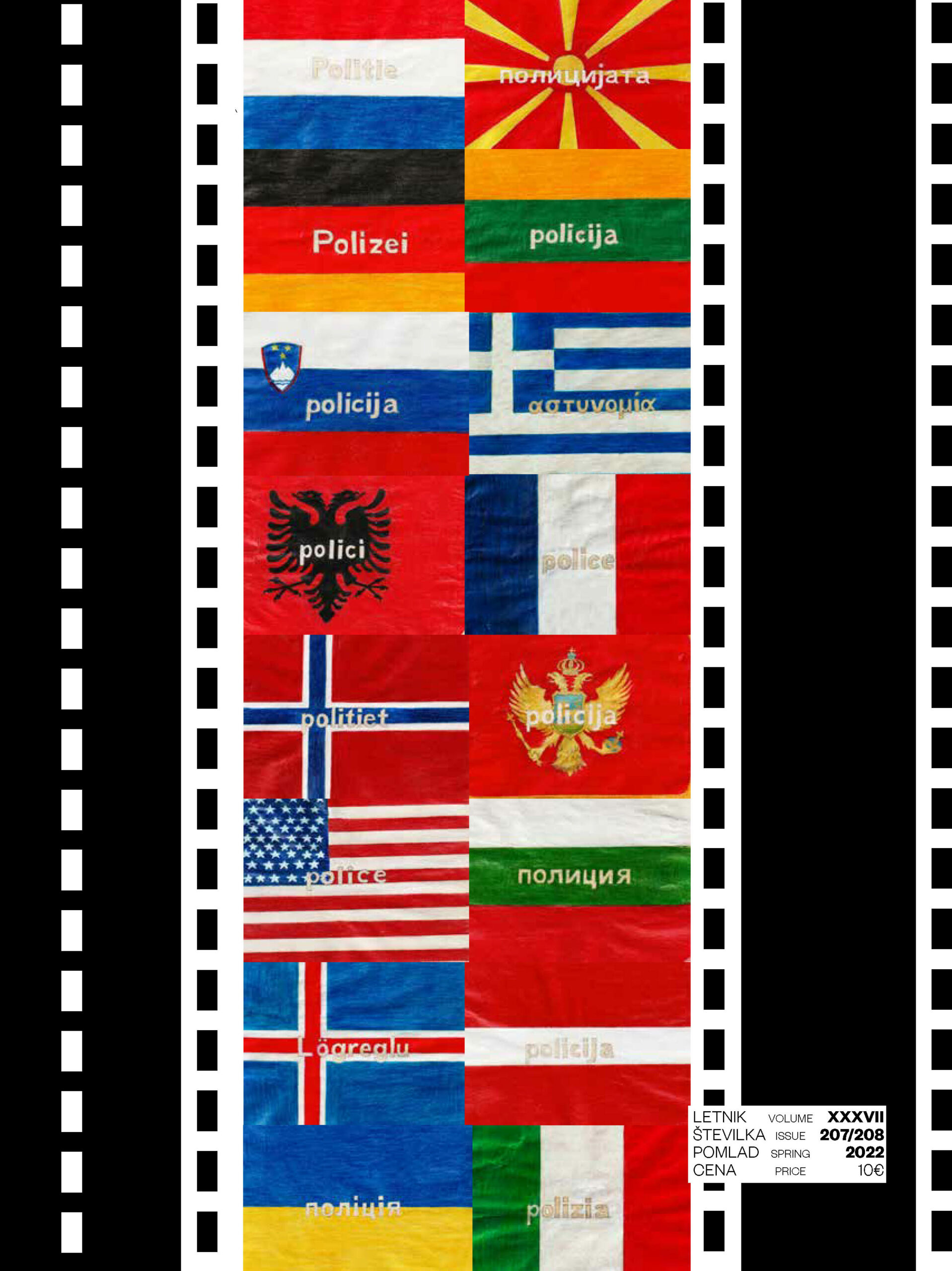
»Hey, you there!«
After participating at the international conference entitled Precarity or Self-management (Prekarnost ali samoupravljanje) in autumn of 2020, Andrej Mirčev suggested we continue our collaboration by putting together a special thematic edition of Maska on the topic of “police” as a political and performative issue, which at the time seemed to us a relevant and interesting field for critical analysis. But back then we had no idea, nor were in any way able to anticipate, how seriously or immediately the issue of violence against physical bodies will feature in our daily lives, especially in the later phases of the corona pandemic and the expansion of actual violence after February 2022. With Andrej Mirčev as our guest editor we began working together in autumn 2021, and we’re publishing this edition in times that are defined by a hardened and brutally transparent “killing machine”. According to André Lepecki, one of the most quoted authors throughout this issue, the common denominator of fascism and neo-liberalism is precisely the(ir) desire to kill. The interview with Lepecki himself by Andrej Mirčev is published in the middle of the relevant thematic segment, and even though it was recorded in autumn of 2021, it is a lucid premonition of how the capitalist machine would move forward.
“Move along!”
Vol. XXXVII, issue 207-208 (Spring 2022)
Editors-in-chief: Pia Brezavšček in Rok Bozovičar
Guest editor: Andrej Mirčev
Author of the cover image: Nikoleta Marković
Authors’ contributions in this issue focus on the topic of “police” using different approaches. Militarization, state of emergency and violence are discussed applying specific discourses and modi operandi, while they all draw associations with Rancière’s theory of “police” and Lepecki’s “choreopolice”. However, before the reader finds her way to the main thematic segment, she first encounters critical writings of the Neodvisni section followed by the column Crumbs from the scene with the humoresque, ego-tripping self-interview by the Frankfurt Hauptschule collective who became famous for their “actionistic” performances that involved the burning of police cars. Izidor Barši’s article, “Police and the Public: Two Scenes from Theory,” is a theoretical introduction into the main thematic section, offering an in-depth, mise-en-scène investigation of Rancière’s theory of “police” and Althusser’s notion of “interpellation,” while also connecting the two in the context of (their) subjective relations to the police.
Jan Lazardzig’s contribution opens up a more historical perspective as it analyzes how the “typology of the criminal” was established and the ways in which a method for the criminology-based identification of the “criminal essence” was developed in the 19th Century, whereby dramatic arts were used to a great degree as the (inspirational) basis for designing these criminologically-psychological representations. A review of James Frieze’s monograph Theatrical Performance and the Forensic Turn, discussed by Tery Žeželj in the section Reading Club, reflects on dramatic literature as a place to offer overview and orderliness.
“Nothing to see here!”
Other contributions focus on limitations imposed upon public space(s), the potentiality of the common space and the more far-reaching effects artistic practices could have. Natascha Siouzouli looks at the case of occupying the Embros Theater in Athens to talk about the aesthetic, ethical and political subject with its numerous contradictions and divisions. Similarly, Katarina Krasznahorkai examines public interventions in space/discourse by analyzing the “nonperformance” of both police and the art-scene that encouraged right-wing attacks, such as the one on the replica of the Statue of Liberty in Budapest, and warns that this kind of nonperformance actually facilitates re-actions, which in turn uncover the institutionalized racism that is present. Furthermore, in his article “Frljić, The Curse and Poland” Igor Stokfiszewski reveals the ambivalence of political theater looking at the case of Frljić’s play – in order for the piece to be performed at all, the police had to be physically present in the theater, which in turn clearly disclosed its own inadequacies, to then continue his contribution by focusing on the potential of the performative’s political effects – the logic of the militia.
The last article, which concludes all the Rancière-inspired writings, looks at the exhibition Realize! Resist! React!: Performance and Politics in the 1990s in the Post-Yugoslav Context to try and develop an understanding of “political performance” outside of its context – Kaja Kraner focuses on materiality and an object-oriented analysis of performances from the 1990’s, that were influenced by the circumstances of war. Three decades later, they invade our reality once again.
»Hey, you!« someone calls out and someone turns around. Nothing prophetic about that.
Translated by Barbara Hribar
Content
www.neodvisni.art
Urška Preis
Once Again Without Touch. Endless Day via digital 1.5
Maša Radi Buh
An Insightful Choreographic Vignette
Metod Zupan
#Unrequited Potentiality of Socially and Politically Committed Theatre
Crumbs from the Scene
Frankfurter Hauptschule
Visionary Ruins (2018)
Police
Izidor Barši
Police and the Public: Two Scenes from Theory
Jan Lazardzig
The Criminal Psychological Representation of Delinquents Around 1900
Andrej Mirčev
The Demise of the Political – or, the Kinestics of the Killing Machine
(Conversation with Andre Lepecki)
Natascha Siouzouli
Ethics of Division
Revisiting the Reactivation of Embros Theatre
Igor Stokfiszewski
Frljić, The Curse and Poland
Notes on Militia
Katalin Krasznahorkai
Punching The Prism: On Nonperformance and Racism
Kaja Kraner
Materiality and War
Political Performance of the 1990s in the Post-Yugoslav Context Beyond the Aesthetics of Voice
Reading Club
Tery Žeželj
Debunking Forensic Aesthetics with the Theatre
(James Frieze: Theatrical Performance and the forensic turn)
